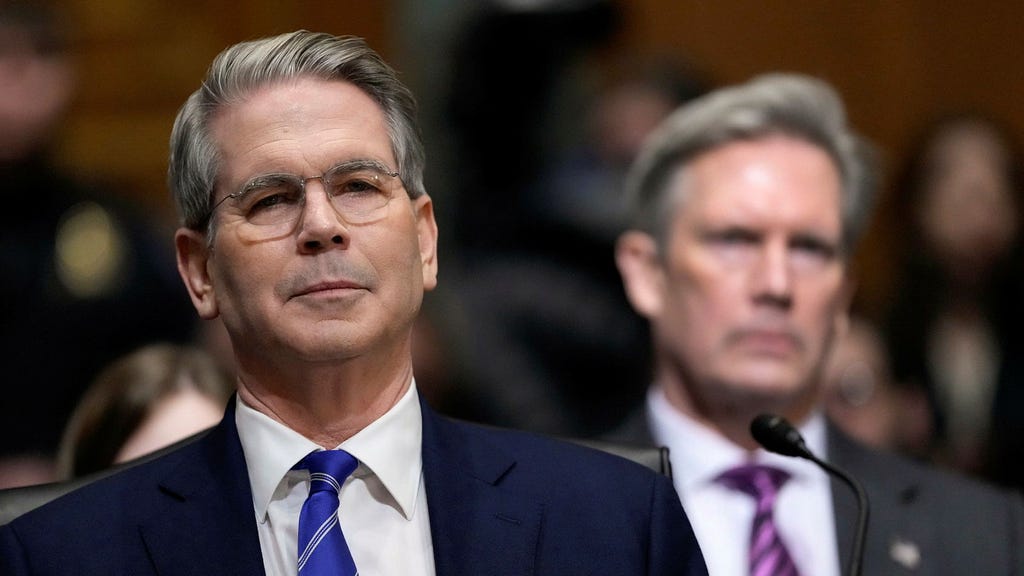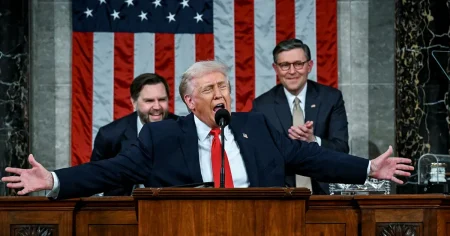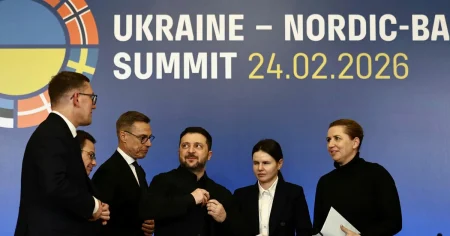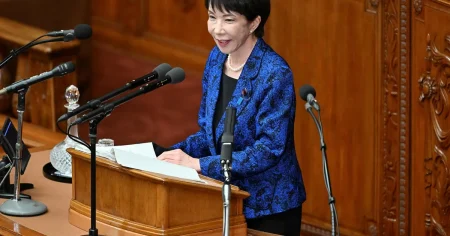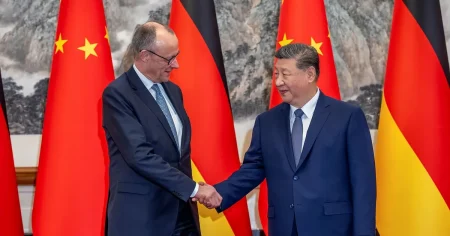Scott Bessent’s nomination as Treasury Secretary marks a potential turning point in American politics, not just for his impressive financial background, but also as a symbol of changing social tides. Denied a career in the Navy and foreign service due to his sexual orientation, Bessent found success in the financial world, amassing a fortune as a hedge fund manager and notably collaborating with George Soros. His selection by President Trump elevates him to the highest-ranking openly gay official in US history, a testament to evolving societal norms and, perhaps, a sign of pragmatism within a politically charged administration. This appointment underscores the complex interplay of personal narratives, political agendas, and societal progress, raising questions about the potential impact of Bessent’s leadership on a nation grappling with deep divisions.
The Senate confirmation hearings for Bessent and other Trump administration nominees provided a glimpse into the current state of American politics. While some hearings were marked by heated exchanges and partisan divides, Bessent’s appearance before the Senate Finance Committee offered a moment of respite. Supported by his husband, John, and their two children, Bessent emphasized his belief that President Trump chose him based on his qualifications, not his sexual orientation. This resonated with some senators, leading to a more conciliatory atmosphere and even opening up possibilities for bipartisan cooperation on critical economic issues. This stands in stark contrast to the contentious nomination of Pete Hegseth for Secretary of Defense, where concerns about qualifications and past controversial statements dominated the proceedings.
The juxtaposition of these two nominations highlights the unpredictable nature of the current political landscape. While Hegseth’s nomination fuels partisan animosity, Bessent’s offers a glimpse of potential common ground. This contrast illustrates the complex dynamics at play as the Trump administration navigates the Senate confirmation process, attempting to balance ideological loyalty with the need for qualified leadership. The responses to these nominations underscore the deep divisions within the Senate and the broader American public, where issues of experience, ideology, and representation intersect.
Senator Elizabeth Warren, known for her sharp questioning, took a different approach with Bessent, focusing on policy rather than personal attacks. Her inquiry about the debt ceiling, an issue she supports abolishing, signaled a willingness to engage in substantive discussion, even with a nominee from the opposing party. Similarly, Senator Bernie Sanders questioned Bessent about capping credit card interest rates, reflecting his ongoing concern about economic inequality and predatory lending practices. While Bessent’s answers may not have completely satisfied these senators, the tone of the exchange remained respectful, suggesting a potential avenue for future collaboration. This measured approach, at least in this instance, indicated a possible shift away from the highly polarized rhetoric that often characterizes political discourse in Washington.
The broader context of these confirmation hearings reveals the deep divisions within American society and the challenges facing the incoming administration. Democratic criticisms of Trump’s tax cuts and concerns about growing economic inequality, as articulated by Sanders, underscore the fundamental disagreements about economic policy. Sanders’ invocation of President Biden’s warnings about oligarchy highlights the anxieties surrounding the concentration of wealth and power in the hands of a few. These concerns persist even amidst moments of bipartisan cooperation, suggesting that fundamental economic and social issues remain unresolved.
However, the relatively conciliatory tone of Bessent’s confirmation hearing, and the respectful reception of Marco Rubio by the Senate Foreign Relations Committee, suggest that bipartisan engagement is still possible. Rubio’s nomination, despite some tough questions from fellow Republicans, garnered positive feedback from Democrats, demonstrating that qualifications and experience can transcend partisan divides. These instances of cooperation, however fleeting, offer a glimmer of hope in an otherwise fractured political landscape. They suggest that despite deep ideological differences, there remains a possibility for productive dialogue and collaboration on issues of national importance. Whether this trend continues remains to be seen, but it offers a potential pathway for navigating the complex challenges facing the nation.





